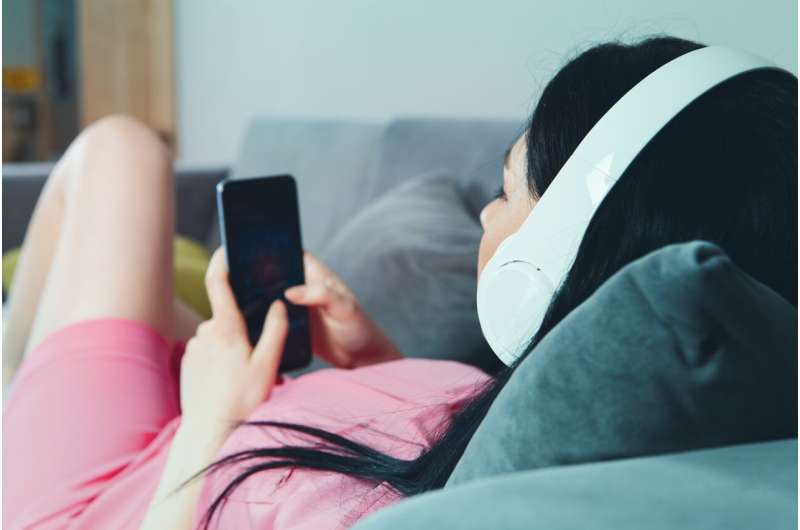Home » Health News »
Excess screen time impacting teen mental health

Teens need to regularly switch screen time for physical activity for the sake of their health and mental wellbeing, according to a University of Queensland-led study.
Researchers have linked harmful effects on adolescents’ mental health to screen time exceeding two hours a day for girls and four hours a day for boys.
UQ School of Health and Rehabilitation Sciences researcher Associate Professor Asad Khan said the global study investigated data from more than 577,000 adolescents aged 13 to 15 years across 42 high-income countries.
“We found there were some benefits during the first hour of daily screen use, but detrimental effects of recreational screen use on mental wellbeing kick in after 75 minutes in girls and 105 minutes in boys,” Dr. Khan said.
“Excess screen time effects can include depression, obesity, poor quality of life, unhealthy diet and decreased physical and cognitive abilities.
“Whereas regular physical activity can improve physical fitness, cardiometabolic health, bone health, academic performance, executive function, mental health and can reduce weight gain.
“Combining increased physical activity with reduced screen time showed a gradual beneficial effect on mental wellbeing across genders.
“One hour of physical activity and no more than two hours of screen time a day provided optimal mental wellbeing.”
The study findings support current recommendations in Australia of limiting electronic screen use to a maximum of two hours a day and physical activity of at least an hour a day for both boys and girls.
Screen time limits and guidelines refer to screen time for entertainment purposes and does not incorporate screen time in schools for education purposes.
“Screen use in teens has increased significantly over recent years and insufficient physical activity is highly prevalent among teens,” Dr. Khan said.
“We hope the strong association between levels of screen use and physical activity co-linked with mental wellbeing can be used to reduce global mental health burden.
“This work contributes towards global debate on ‘how much is too much’ for teen screen use and builds pressure to reduce recreational screen time and increase movement for the health and wellbeing of this pediatric population.
“More opportunities for families, communities and schools need to be created to encourage adolescents to alternate screen time with physical and outdoor activities, which also provides additional benefits such as social connections and skills.”
The study was conducted in collaboration with Queen’s University and University of Ottawa, Canada; University of New South Wales and Queensland University of Technology.
Source: Read Full Article



